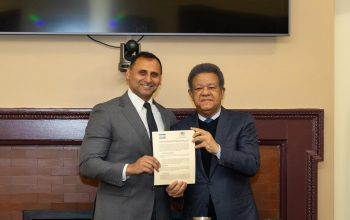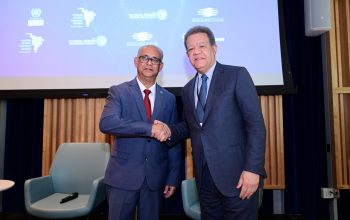news
Telework No Longer Is Virtual, But Real
March 10, 2008
On March 6, 2008, as part of the 2008 Conference of Virtual Educa Caribe, Victor Pizarro, Regional Director of Certifica.com, gave the presentation, “Telework: A Tool to Generate Resources,” in which he discussed the benefits of this increasingly common business trend.
He began his presentation by defining the terms e-learning, e-business and telework, and how all three
converge. “Never before have there been such changes in the way people communicate and learn. These days, networks are based on conversation and cooperation,” he stressed.
converge. “Never before have there been such changes in the way people communicate and learn. These days, networks are based on conversation and cooperation,” he stressed.
E-Learning refers to the system of networks and information that provides access to learning materials, pedagogical activities and support.
E-Business encompasses all development and research efforts, regardless of business model, through the use of online platforms.
Telework refers to all forms of work that do not require the presence of the employee in the office or workplace. Instead, the employee utilizes a variety of information technology and communication now available through the market.
Pizarro emphasized
that e-learning encourages intensive use of information and communication technologies while facilitating the creation, adoption and distribution of content. In addition, it promotes faster rates of learning and increases availability of learning tools – regardless of geographical limitations and time zones – thus permitting students to exchange opinions and knowledge, further enriching the learning process.
that e-learning encourages intensive use of information and communication technologies while facilitating the creation, adoption and distribution of content. In addition, it promotes faster rates of learning and increases availability of learning tools – regardless of geographical limitations and time zones – thus permitting students to exchange opinions and knowledge, further enriching the learning process.
Putting these strategies into effect has generated
the need to produce high quality content aimed at enhancing the learning process.
the need to produce high quality content aimed at enhancing the learning process.
All e-learning platforms require teams of people in strategic positions in order to guarantee program success. Some of these positions include: Instructional Designer or Content Editor, Content Producer and/or Pedagogical Tutors.
The education, training, selection and quality operation of the talent necessary for these jobs is
dependent upon the platform’s capacity to function. They open up a world of new challenges, a vast field of development and opportunities for insertion into the labor market through telework,” maintained Pizarro.
dependent upon the platform’s capacity to function. They open up a world of new challenges, a vast field of development and opportunities for insertion into the labor market through telework,” maintained Pizarro.
Virtual Educa Caribe, an initiative of Global Foundation for Democracy and Development (GFDD) and Fundación Global Democracia y Desarrollo (FUNGLODE), was launched in Santo Domingo during the
Inter-American Forum on New Technologies that took place in April, 2007.The forum seeks to promote discussion and foster the use of new technologies in education, capacity building and training. In this sense, Virtual Educa Caribe seeks to contribute to elevating labor efficiency and ultimately economic growth and competitiveness in the country.
Inter-American Forum on New Technologies that took place in April, 2007.The forum seeks to promote discussion and foster the use of new technologies in education, capacity building and training. In this sense, Virtual Educa Caribe seeks to contribute to elevating labor efficiency and ultimately economic growth and competitiveness in the country.







